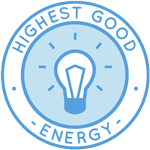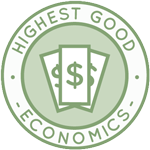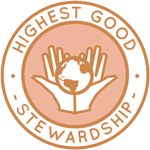Facilitating Ecological Living for All – One Community Weekly Progress Update #175
Most people would agree that facilitating ecological living for all people, everywhere, is a good idea. We agree and are doing our part through open source and free-shared approaches to eco-living that go beyond sustainable approaches to food, energy, and housing by also including open source and Highest Good approaches to education, for-profit and non-profit economic design, social architecture, fulfilled living, and global stewardship practices. By combining and open sourcing all these areas together, One Community is working towards a world where ecological living will be the standard and foundation from which all living models are evolved.
- Here’s our project overview
- Here’s our world-change methodology
- Here’s how this becomes self-replicating
- Here’s how we are open source and free-sharing all the do-it-yourself designs

OUR MAIN OPEN SOURCE HUBS
Click on each icon to be taken to the corresponding Highest Good hub page.
One Community’s physical location will forward this movement of facilitating ecological living for all as the first of many self-replicating teacher/demonstration communities, villages, and cities to be built around the world. This is the July 31st, 2016 edition (#175) of our weekly progress update detailing our team’s development and accomplishments:
Facilitating Ecological Living for All
One Community Progress Update #175
Here is the bullet-point list of this last week’s design and progress discussed in detail in the video above:
FACILITATING ECOLOGICAL LIVING FOR ALL INTRO: @1:03
FACILITATING ECOLOGICAL LIVING FOR ALL HIGHEST GOOD EDUCATION: @2:00
- Transferred the second 25% of the written content for the Honesty and Integrity Lesson Plan to the website  (see below)
- Behind the scenes: wrote final 25% of the written part of the Honesty & Integrity Lesson Plan
- Completed the second 25% of the mindmap for the Information Lesson Plan (see below)
FACILITATING ECOLOGICAL LIVING FOR ALL HIGHEST GOOD FOOD: @2:54
- Added the nutrition corrections that were made by Naturopathic Doctor Matt Marturano to our Sustainable Food Nutrition Calculations page (see below)
FACILITATING ECOLOGICAL LIVING FOR ALL HIGHEST GOOD HOUSING: @3:27
- Put another 10 hours into the behind-the-scenes revision for the Footers, Foundations and Flooring page for the crowdfunding campaign we are developing (see below)
- Reformatted and updated the remaining 3 village pages: Shipping Container Village, Recycled Materials Village, and the Tree House Village (see below)
- Sal Rubio continued working on creating professional do-it-yourself Earthbag Village Murphy Bed furniture assembly instructions (see below)
- Brianna Johnson continued evolving the renders for the Straw Bale Village (see below)
- Vidya Patil joined the team and completed her 1st week of cost analysis for the Straw Bale Village (see below)
- Dean Scholz further developed what’s necessary for us to create quality Cob Village renders (see below)
- Hamilton Mateca joined the team and begin evolving the Compressed Earth Block Village (see below)
- Guy Grossfeld continued with his 7th week of photoshop work on the renders for the Shipping Container Village and also started working on the main render for the Compressed Earth Block Village (see below)
- Zachary Melin continued updating the Tree House Village (Pod 7) book created by last year’s intern Team
FACILITATING ECOLOGICAL LIVING FOR ALL DUPLICABLE CITY CENTER: @6:56
- Continued developing the Duplicable City Center in 3D and fixed some structural discrepancies in natural pool and spa area (see below)
- Worked with Bupesh Seethala to clarify outline of Sketchup to AutoCAD discrepancies (see below)
- Iris Hsu continued exploring recycled pipe shelving and overhead lighting options for the Duplicable City Center library (see below)
- Neha Verma continued developing the City Center Project Brief that will update the City Center Plans Page when complete (see below)
- Dipti Dhondarkar continued her work on the lighting zones (see below)
- Haoxuan “Hayes” Lei continued his work on the live load calculations for the City Center dining dining dome frame (see below)
FACILITATING ECOLOGICAL LIVING FOR ALL HIGHEST GOOD SOCIETY: @8:50
- Completed 1st round of Cob Village and Compressed Earth Block Village color board (see below)
- Revised and completed the Straw Bale Village color board with final color callouts (see below)
- Jennifer Zhou continued her work developing the new website structure (see below)
FACILITATING ECOLOGICAL LIVING FOR ALL SUMMARY: @9:24
- How you can most help us right now and how anyone can help
CLICK HERE IF YOU’D LIKE TO RECEIVE AN EMAIL EACH WEEK WHEN WE RELEASE A NEW UPDATE
YOU CAN ALSO JOIN US THROUGH SOCIAL MEDIA
ONE COMMUNITY WEEKLY UPDATE DETAILS
FACILITATING ECOLOGICAL LIVING FOR ALL HIGHEST GOOD EDUCATION PROGRESS
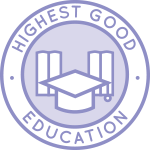 One Community is facilitating ecological living for all through Highest Good education that is for all ages, applicable in any environment, adaptable to individual needs, far exceeds traditional education standards, and more fun for both the teachers and the students:
One Community is facilitating ecological living for all through Highest Good education that is for all ages, applicable in any environment, adaptable to individual needs, far exceeds traditional education standards, and more fun for both the teachers and the students:
- Learn about the components: Education open source hub
- Learn how the components work together: How to use the Education for Life Program
This last week the core team transferred the second 25% of the written content for the Honesty and Integrity Lesson Plan to the website, as you see here. This lesson plan purposed to teach all subjects, to all learning levels, in any learning environment, using the central theme of “Honesty & Integrity” is now 50% completed on our website.
Behind the scenes, we wrote the final 25% of the written part of the Honesty & Integrity Lesson Plan.
We also completed the second 25% of the mindmap for the Information Lesson Plan, bringing it to 50% complete, which you see here.
FACILITATING ECOLOGICAL LIVING FOR ALL HIGHEST GOOD FOOD PROGRESS
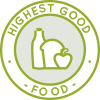 One Community is facilitating ecological living for all through Highest Good food that is more diverse, more nutritious, locally grown and sustainable, and part of our open source botanical garden model to support and share bio-diversity:
One Community is facilitating ecological living for all through Highest Good food that is more diverse, more nutritious, locally grown and sustainable, and part of our open source botanical garden model to support and share bio-diversity:
- Learn about the structures: Hoop House Hub | Aquapini & Walipini Open Source Hub
- See what we’ll be growing: Gardens & Hoop Houses | Large-scale Structures | Food Forest | TA
As part of the development of our Food Self-sufficiency Transition Plan, this week, the corrections to our nutrition calculations that Naturopathic Doctor Matt Marturano (creator of the COHERENT model for comprehensive digestive health) made were added to our Sustainable Food Nutrition Calculations page.
FACILITATING ECOLOGICAL LIVING FOR ALL HIGHEST GOOD HOUSING PROGRESS
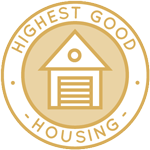 One Community is facilitating ecological living for all through Highest Good housing that is artistic and beautiful, more affordable, more space efficient, lasts longer, DIY buildable, and constructed with healthy and sustainable materials:
One Community is facilitating ecological living for all through Highest Good housing that is artistic and beautiful, more affordable, more space efficient, lasts longer, DIY buildable, and constructed with healthy and sustainable materials:
- Learn about: Our Upcoming Crowdfunding Campaign
- Learn about the different village models: 7 Sustainable Village Models
- Visit the open source portals for the first two: Earthbag Village OS Hub | Straw Bale Village OS Hub
This last week the core team put another 10 hours into the behind-the-scenes revision for the Footers, Foundations and Flooring page for the crowdfunding campaign we are developing. This week we researched EPS and XPS insulation and wrote up a narrative for the 16-gauge galvanized wire for its use in attaching to e-bag course 9 and to flashing. We also added photos and narratives for 1/2″ black poly tubing, 10″ aluminum flashing, rubber mallet, straw, hacksaw, 16-gauge galvanized wire, sealing tape, and caulking. We’d say we are now 92% complete with this total update and rewrite behind the scenes.
The core team also reformatted and updated the remaining 3 village pages: Shipping Container Village (Pod 5), Recycled Materials Village (Pod 6), and the Tree House Village (Pod 7). This included adding new residence and social space details, the new renders that have been completed, imagery from the design process of each village, an index to the top of each page, What and Why sections to each page, as well as new resources and resource sections.
Sal Rubio (Industrial Designer) also continued working on creating professional do-it-yourself Earthbag Village Murphy Bed furniture assembly instructions. What you see here is week 10 of this process that included this update to the component cutting instructions, the first draft of a Table of Contents, and a call with the core team brainstorming the two sketches as evolutions for the Table of Contents designs.
Brianna Johnson (Interior Designer), also continued evolving the renders for the Straw Bale Village (Pod 2). What you see here are two new layouts for the family living spaces with a loft, re-designed to better reflect the sustainability and recreational values of the people who will be living here.
Vidya Patil (Quantity surveyor and Civil CAD Drafter) also joined the team and completed her 1st week of cost analysis for the Straw Bale Village. The beginning of this work focused on the bedroom and bathroom details shown here:
And Dean Scholz, Architectural Designer, further developed what’s necessary for us to create quality Cob Village (Pod 3) renders. Here is update 29 of his work that focused on finishing the rooftop grill designs:
Also, Hamilton Mateca (AutoCAD Draftsperson and Designer) joined the team and begin evolving the Compressed Earth Block Village (Pod 4). You can see his 1st week of work here, showing the addition of family living units on the North side of the structure.
Guy Grossfeld, (Graphic Designer) also continued with his 7th week of photoshop work on the renders for the Shipping Container Village (Pod 5) and also started working on the main render for the Compressed Earth Block Village (bottom right) starting the extensive process of adding a blue overlay that will evolve into blue accents. For the Shipping Container Village the focus was on creating a resident’s room with different details and color formats from the visitor’s room and also beginning one of the Dining Hall renders.
Zachary Melin (Graphic Designer) also continued updating the Tree House Village (Pod 7) book created by last year’s intern Team. What you see here is week 10 of this work including 2 updated pages and the before-and-after graphics created for one of them.
FACILITATING ECOLOGICAL LIVING FOR ALL DUPLICABLE CITY CENTER PROGRESS
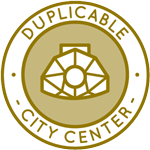 One Community is facilitating ecological living for all through a Duplicable and Sustainable City Center that is LEED Platinum certified/Sustainable, can feed 200 people at a time, provide laundry for over 300 people, is beautiful, spacious, and saves resources, money, and space:
One Community is facilitating ecological living for all through a Duplicable and Sustainable City Center that is LEED Platinum certified/Sustainable, can feed 200 people at a time, provide laundry for over 300 people, is beautiful, spacious, and saves resources, money, and space:
- Learn about this building and it’s function: Duplicable City Center Open Source Hub
This week the core team continued developing the Duplicable City Center in 3D. What you see here are the updates in the dining dome where we increased the driveway to the cellar to a width of 13 feet and rearranged the cellar shelves and moved the outside boiler room to the corner of the basement where it is now close to the garage door.
We also ran test renders for the Kitchen.
And fixed some structural discrepancies in the natural pool and spa area.

Facilitating Ecological Living for All – Fixed Structural Discrepancies in Natural Pool and Spa Area
We also worked with Bupesh Seethala (Interior Designer and Drafter) to clarify this outline of Sketchup to AutoCAD discrepancies so he could start updating the window and door plan and creating our section drawings.
Iris Hsu (Industrial Designer), also continued exploring recycled pipe shelving and overhead lighting options for the Duplicable City Center library. What you see here is round #13 of this work of initial renders to test 2 different art options for the center of the pipe shelving wall.
Neha Verma (Construction Project Manager and Bachelor’s of Architecture), also continued developing the City Center Project Brief that will update the City Center Plans Page when complete. This week’s focus was a file naming tutorial we’ll use for all projects and details about why we chose Geodesic Domes.
Dipti Dhondarkar, (Electrical Engineer) continued her work on the lighting zones by updating the AutoCAD file and double checking all the zones with a simpler labeling method:
Haoxuan “Hayes” Lei (Structural Engineering Student) continued his work on the live load calculations for the City Center dining dining dome frame as seen here.
FACILITATING ECOLOGICAL LIVING FOR ALL HIGHEST GOOD SOCIETY PROGRESS
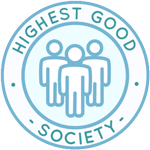 One Community is facilitating ecological living for all through a Highest Good society approach to living that is founded on fulfilled living, the study of meeting human needs, Community, and making a difference in the world:
One Community is facilitating ecological living for all through a Highest Good society approach to living that is founded on fulfilled living, the study of meeting human needs, Community, and making a difference in the world:
- Read the Highest Good society overview: Highest Good Society
- Learn about the model for fulfilled living and sharing: A Day in the Life
- Learn about the 4 economic models: RBE | For-profit | Non-profit | Entrepreneurship
- Learn about our open source community collaboration and management software: The Highest Good Network
This last week the core team completed the 1st round of the Cob Village (Pod 3) color board:
….and the first round of the color board for the Compressed Earth Block Village (Pod 4), bringing both to about 85% complete.
Also this week, we revised and completed the Straw Bale Village color board with final color callouts.
Jennifer Zhou (Web Designer) additionally continued her work developing the new website structure. What you see here is week 3 of her work as she continues to build the new homepage structure and functionality with a focus on the top sliders and menus.
AND WE PRODUCED THIS WEEKLY UPDATES BLOG – CLICK HERE TO SUBSCRIBE
FOLLOW ONE COMMUNITY’S PROGRESS (click icons for our pages)
INVESTOR PAGES
GET INVOLVED
CONSULTANTS | WAYS ANYONE CAN HELP | MEMBERSHIP
CLICK HERE FOR ALL PAST UPDATES
WHAT ONE COMMUNITY IS CREATING
One Community is creating a place to grow together and change the world together by facilitating ecological living for all. We are creating a space that helps each other live in integrity with each other and the planet as we strive to be the greatest versions of ourselves. We do this by harmoniously respecting each other, nature, and the rest of our one shared planet.
Our goal is to demonstrate what we feel is the most sustainable, healthy, and fun environment we can create. A place based on compassion, kindness, and collaboration. This replicable community will serve as an example for what is possible by facilitating ecological living for all.
Throughout our design process we are open sourcing and free-sharing everything needed for construction and replication. This includes what we call “Highest Good” approaches to food, energy, housing, education, for-profit and non-profit economics design, social architecture, fulfilled living, stewardship practices and more. We are creating these resources for implementation as individual components or complete developments called teacher/demonstration hubs. These hubs will help launch additional hubs as awareness and knowledge grow.
FACILITATING ECOLOGICAL LIVING FOR ALL BUILDING THE FIRST OF MANY
One Community will be the first teacher/demonstration hub for facilitating ecological living for all. It will function as an experiential-learning model that facilitates mass participation to address humanity’s most pressing challenges through: A replicable model for expansion, building seven self-sufficient village/city prototypes, becoming the world leader in open-source sustainability solutions, and evolving and expanding ALL aspects of sustainable living.
WHY ONE COMMUNITY IS CREATING THIS
The One Community self-replicating model is capable of creating a sustainable planet within 30 years by facilitating ecological living for all. We will achieve this by establishing successful teacher/demonstration hubs on every continent. Villages include designs appropriate for each of the five main types of climates. They also include options for even the most challenged economies. These hubs will collaborate with one another, share ideas, resources, and work together as a network to heal the planet. They will also transform the global lifestyle to a more enjoyable, fulfilling, healthy, and sustainable one.
The specifics of how One Community is accomplishing this can be found on the One Community Solution Model to Create Solution-creating Models Page. Research supporting and showing the benefits of a model like this can be found on our Research and Resources Articles Archive.
Even if we don’t achieve our ultimate goal of global transformation, a self-replicating teacher/demonstration model like this will take a relatively short period of time to positively affect millions while inspiring millions more. For One Community residents (the Pioneer Team), the idea of creating and sharing the social and recreational experience with visitors is also fun, exciting, fulfilling, and an additional reason why we are creating this.
INSPIRING SUSTAINABILITY WITH OPEN SOURCE
One Community’s four-phase strategy for the creation of solution models that create solution creating models uses open source blueprints for duplication that simultaneously address all aspects of the human experience (food, energy, housing, education, social inequality and injustice, fulfilled living, etc.). We see these areas as interdependent and requiring a comprehensive solution if humanity is to move ecologically, socially, economically, and permanently towards a truly sustainable future for everyone.
Our open source model and blueprints engage and inspire people while simultaneously making sustainable living more affordable and easy to replicate. By free-sharing the step-by-step plans people need for duplication, inviting people to participate, and demonstrating sustainable teacher/demonstration hubs as a more desirable way of living, the model will predictably expand on its own.
It is this approach we see uniting the world and leading to a new Golden Age for humanity. While we understand that not everyone believes this is even possible, we are nonetheless bringing together all those that do see this as possible as the non-profit think tank of forward-thinking individuals willing to design, build, and open source project-launch blueprint and free-share it for The Highest Good of All.
COMPREHENSIVE SOLUTION TO HUMANITY’S NEEDS
One Community is open source sharing an evolution of sustainable living that addresses the complete human experience. We are doing this because we see the solutions for global food, housing, energy, education, social inequality, ethical business practices, earth regenerative practices, and a desire for a more fulfilling living experience as inseparably interconnected. As a comprehensive solution, we are addressing all these areas simultaneously and open source free-sharing everything needed for individual duplication and/or duplication as complete self-replicating teacher/demonstration communities, villages, and cities to be built around the world.
As we address and open source share these areas we will establish a living example of the first teacher/demonstration village purposed to teach others. To maximally facilitate duplication, One Community will provide seven duplicable examples and function indefinitely as a place people can visit and a non-profit and open source think tank continuing to further evolve and share solutions in all of the above areas and more. We will also provide hands-on experience and training. Most importantly, growing upon our sustainable foundation, we will endlessly make this comprehensive solution even more widely known and globally accessible, understandable and diversely duplicable, and inspiring and desirable as a model worth duplicating.
GLOBALLY IMPLEMENTABLE REPLICATION MODEL
The more people that are inspired and desiring for themselves what it is that One Community creates, the more demand there will be for spreading the One Community model by facilitating ecological living for all. This leads to the directing of financial resources and resourceful people where we believe they are needed most: the establishment of additional sustainable communities around the world. We also feel this duplication will specifically happen quickly internationally due to the affordability of overseas land, less restrictive building environments, and the spirit of adventure in many people who really desire to make a difference for those who need it most.
To meet the increasing demand for sustainability that we are contributing to, we are coordinating with manufacturers, education institutions, individuals, and vendors. This is also part of this model to help the world. Its purpose is to facilitate more engagement of the sustainability industry, produce the absolute best possible consumer value, and the most convenient delivery of goods and methodologies for building sustainable living communities and sustainable living components.
This means we not only provide education and increase needed sustainability resources, we also address the underlying roadblocks to a sustainable planet by decreasing the cost and simultaneously increasing the demand and generating financial support for global sustainability, philanthropy, and humanitarian movements and organizations.
As demand increases, so too will the ways to participate. Right now people are participating as consultants or partners donating time to our 501(c)(3) nonprofit organization, and others are more involved as Pioneers of the core team that will be moving to the property. We also have options for people to just follow our progress or participate through internet contribution.
Once the supportive physical infrastructure is about 30% developed, One Community will be ready to additionally expand what we offer to include scholarships, free weekend learning groups, core team members choosing to travel abroad to help others get established too, handling the marketing for all similar models operating for The Highest Good of All, and hosting classes and other sponsored events to promote and demonstrate additional methodologies.
We also imagine the high likelihood that our organization for facilitating ecological living for all will become a foundation that can be trusted as the donation point for distribution of monies to help others to establish this model also.
 One Community
One Community